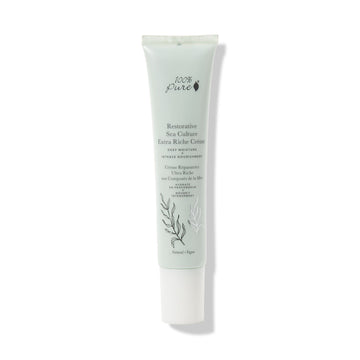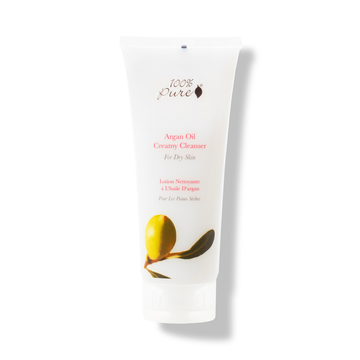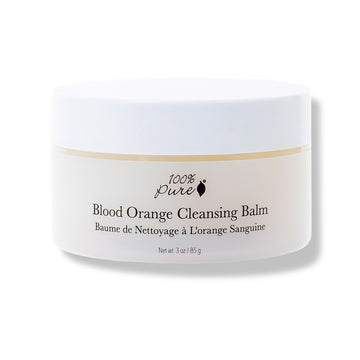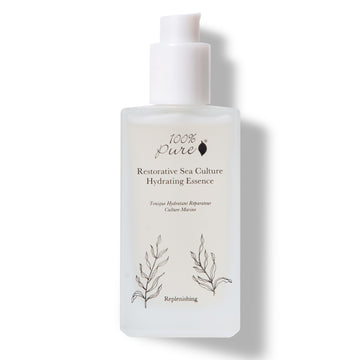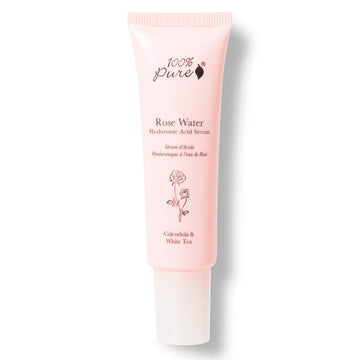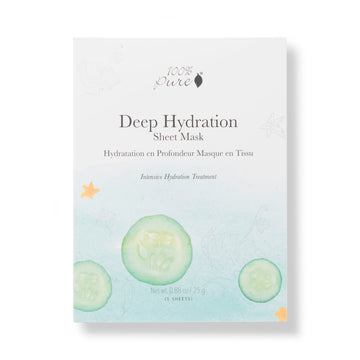Got dehydrated skin? Get the best tips on proper skin hydration – plus the top products to quench dehydrated skin
Written by: 100% PURE ®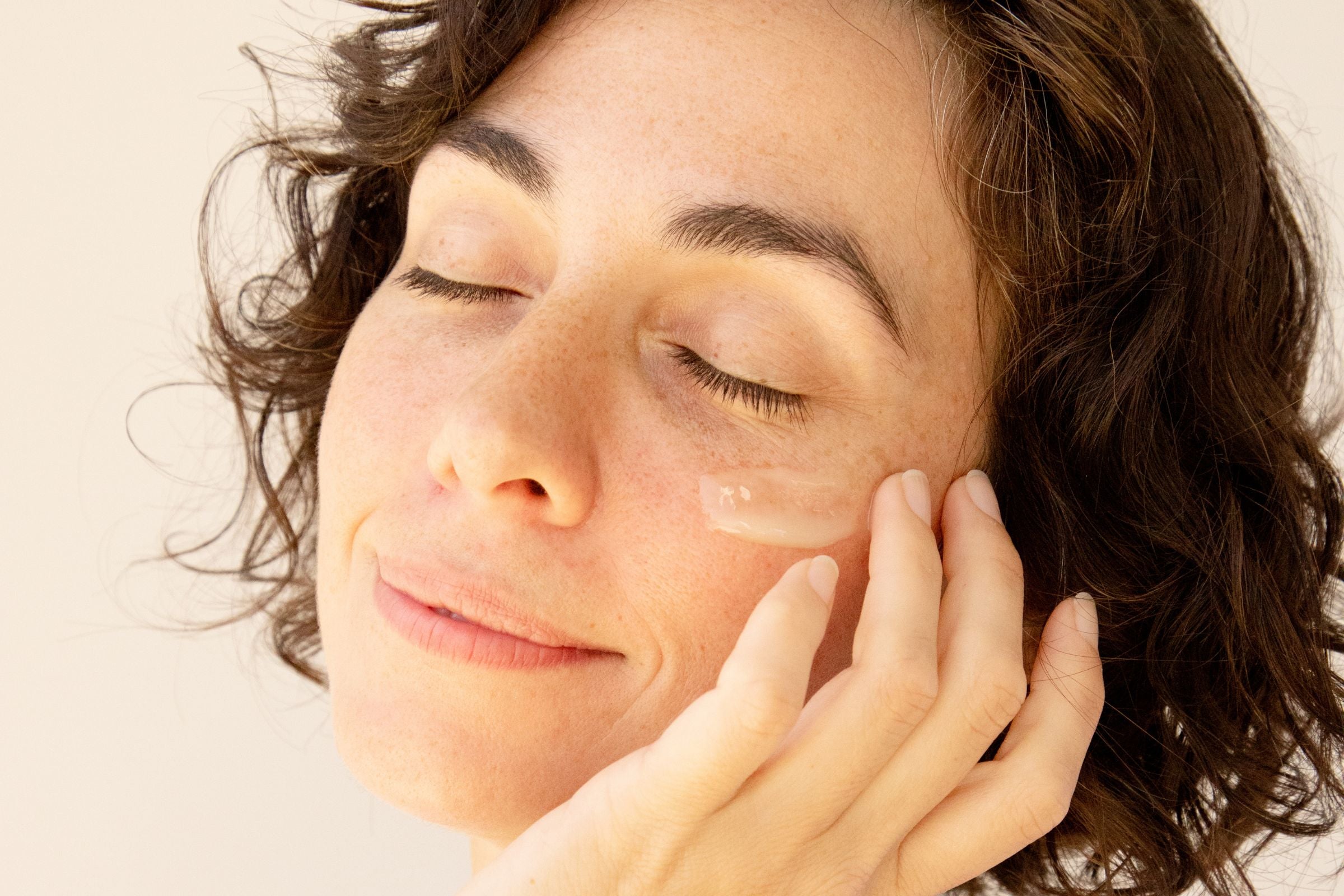
Fabulous jewelry, trendy apparel, or the latest electronics may have been some of the hot tickets we received from our holiday wish list, but a tired, dehydrated complexion is certainly not on our skin wish list. Sure, the season of shop-till-you-drop may have led to weary souls, but worn-out skin is a ho-ho-no for the new year.
Struggling to hydrate parched skin can happen any time of the year, but the moisture-sapping cold months and post-holiday rush put extra stress on our skin to be more at risk for dehydration. It’s time for dull, thirsty complexions to receive a skin holiday with the best skin hydration tips and products to achieve skin that’s merry and bright year-round.
For some of us, summer is the most sizzling season, while for others, winter is the most anticipated time of the year. Crisp temps, snuggly sweaters, and frosty fun outdoors are among some of the endless possibilities of the winter wonderland season. But the cold weather, dry air, and time outdoors could mean a blizzard of skin woes, especially dehydrated skin.
Dehydrated skin isn’t so much a skin type as it is a skin condition. It occurs when the epidermal layer lacks WATER. When the weather plays the “Grinch” like freezing temperatures or excessively dry air, the “grouchy” weather zaps precious moisture away from our skin cells, including lipids or fatty acids in your epidermal layer. This can lead to dryness, itchiness, dullness, and increased visibility of fine lines and wrinkles.
Since our skin is a whopping 64 percent water, when water is lacking in the environment, dehydrated skin can happen to anyone. Living in a predominately year-round climate that’s cold or dry may also exacerbate dehydrated skin. Age, job, diet, and smoking habits can also cause dry skin. If your complexion is looking less than bright and cheery, you likely have dehydrated skin.

When skin is dehydrated, it may compensate for the lack of water in the skin by overproducing oil, which could lead to even oiler skin. Like searching for a water source in the desert, dehydrated skin can become congested, dull, and lackluster – or parched and completely dried up. It could have a combination of annoying symptoms like being greasy and dry simultaneously, which could lead to irritation and breakouts.
Dehydration can be the culprit behind the bags under your eyes, general dullness, and premature wrinkling on your forehead (no thanks!). Makeup application over dehydrated skin can be a “nightmare after Christmas”, as even the best products tend to sit in fine lines and emphasize problem areas.
A variety of external factors could cause dehydration and tidings of un-joy for your skin, like excessive sun exposure, not wearing sun protection, harsh weather, poor hydration, and diet, as well as excessive caffeine and alcohol consumption. If your skin is dehydrated, more than likely, you are, too. Gift yourself adequate hydration daily and year-round.
Now for the good stuff. We love curating wholesome, healthful products. But a healing skin routine for dehydrated skin doesn’t just start with skincare, but also with good daily skin habits. Dehydrated skin doesn’t need more than one extreme - oil and water - to hydrate and balance it out. Instead, it needs gentle care and the help of natural products to be brought back to a harmonious state.
We start with a few simple life tweaks. Adding a humidifier to our collection of home gadgets can do wonders for our parched skin and our plant babies. Take warm baths and showers and moisturize the face (and body) immediately after bathing for the best absorption and longest-lasting hydration.
Now for the actual dry skincare routine. Masks are joining our regular rotation of skin products for the ultimate in hydration goodness. Hydrating gel masks, sleeping masks, and sheet masks are all welcome to play.
Next, we’re swapping out our bubbly face products for options with more slip, such as gentle, creamy cleansers and moisturizers that quench the skin’s need for moisture. They feature fa-la-lovely ingredients like moisturizing essential oils, hydrating seaweeds, nourishing super fruits, and more that can save your skincare disaster and groom it into shining bright like your new year.
Newsletter Subscribe
for more blog updates and exclusive discounts
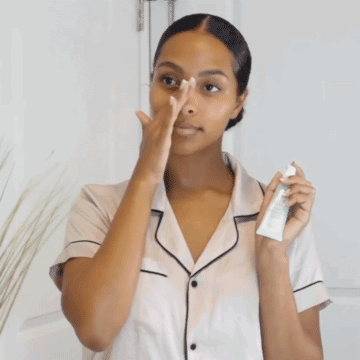
The winter months can take already-dry skin to the next level. Cold weather and low humidity can take thirsty skin to now dehydrated skin causing a parched, lackluster complexion. It can be hard to decide on the best ways to keep skin hydrated. That’s why we curated a skincare list of tips for you and have checked it twice.
Tip #1. Really moisturize your skin
Having dehydrated skin is one thing, but not using a moisturizer to lock in moisture is like a fruit tart without the glaze – it won’t be as moist or shiny. Choose a natural moisturizer that works hard to lock hydration into your skin and will prevent moisture from escaping from your delicate dermis.
One of our favorite treatments for dehydrated skin is our Restorative Sea Culture Extra Riche Cream. This luxurious treatment is made with rich butters and oils and features nutrient-rich sea minerals and hydrating seaweeds to plump and strengthen your skin.
Tip #2. Rethink your cleansing routine
Avoid harsh face exfoliating scrubs, which can wear down your skin’s protective lipid barrier, preventing your skin from keeping moisture locked in.
Opt for a gentle, natural cleanser such as our Argan Oil Creamy Cleanser. This creamy, dreamy cleanser moisturizes while it cleans your skin, harnessing the power of argan oil to restore moisture and suppleness to your complexion.
For stubborn impurities or flakey skin, our Blood Orange Cleansing Balm is a moisturizing facial cleanser made with degreasing blood orange, plus coconut and olive oils to melt away even the most stubborn makeup, debris, and impurities without disrupting your skin’s protective barrier.
Tip #3. Use natural skincare products
If you have dehydrated skin – or any skin type or condition for that matter – steer clear of conventional skin care products that often contain harsh chemicals and artificial fragrances that can turn your complexion into un-merrily and un-bright sight.
Not to ring our new year bell, but we have a fabulous range of natural skincare products that will make dehydrated skin a thing of the past. One of our fan-favorite formulas for dehydrated skin that will complement your skincare routine the way fruit makes the ol’ fruitcake is our Restorative Sea Culture Hydrating Toner, which pairs nicely under its moisturizer counterpart, Restorative Sea Culture Extra Rich Crème. This dynamic hydration duo softens, plumps, and hydrates skin. Add our Rose Hyaluronic Acid Serum for extra hydration and plumpness sure to turn your skin extra plump and bright.
Tip #4. Use a sheet mask weekly
Our Deep Hydration Sheet Mask replenishes dry, thirsty skin with aloe juice and a nourishing trio of cucumber, hyaluronic acid, and plant ceramides. This water-drenching blend of botanicals locks in long-lasting hydration to leave skin ultra-plump, soft, and supple. Anti-inflammatory rosehip, ylang ylang, and chamomile help to calm the skin, while beta-glucan soothes and moisturizes.
What Key Ingredients Should You Look for in Hydrating Skincare Products?
Must-use ingredients in hydrating skincare products to help zap dry skin are hyaluronic acid, AHAs, ceramides, niacinamide, and vitamins C and E. These ingredients hydrate and nourish skin, brighten and soften your complexion, and help with cellular turnover. Look for ingredients rich in antioxidants, such as green tea and berry-infused formulas, that have skin-boosting benefits.
How Do Hyaluronic Acid Products Benefit Parched Skin?
Parched skin is lacking essential hydration and moisturization. Hyaluronic acid helps to lock moisture into the skin and it helps to plump your complexion. Products with hyaluronic acid help to protect it from environmental and UV damage and maintain its elasticity. They also promote collagen production, boosting skin firmness and elasticity, which are also important in lessening wrinkles and fine lines.
What Are the Best Hydrating Serums for Extremely Dry Skin?
Using top hydrating serums is the most direct way to provide skin with topical nutrition. Serums are the first real hit of moisture that our skin gets after cleansing and toning. Look for natural ingredients in serums with a range of vitamins – usually A, C, and E – and super-hydrating ingredients like vitamin E, oils, and butters, that can help restore and replenish skin while brightening it.
Can Face Oils Effectively Hydrate Parched Skin?
Overall, face oils can help to restore moisture balance. Natural face oils can effectively improve moisture levels in dehydrated skin by sealing in moisture and creating a barrier that prevents further water loss. Face oils help to keep your skin balanced and for oily skin types, can help keep sebum at bay – a slippery slope that can lead to acne.
How Do Overnight Hydrating Masks Differ from Regular Moisturizers?
Hydrating masks provide a more intensive treatment than regular moisturizers. Moisturizers help to hydrate and moisturize the skin, but overnight face masks offer a more intensive hydrating treatment, helping to nourish and repair the skin while you sleep.
Happy New Year skin is all about balance, and this applies not just to the natural, fabulous products we curated here for you, but it also to skin habits. Now, we all probably indulged in too many festive foods and goodies during the holidays, and hey, that’s okay! No, bah skin-bug here! But make sure you adapt the best skincare routine for dehydrated skin to keep your complexion healthy and bright year-round!
- Tags: December-2023
We carefully hand-select products based on strict purity standards, and only recommend products we feel meet this criteria. 100% PURE™ may earn a small commission for products purchased through affiliate links.
The information in this article is for educational use, and not intended to substitute professional medical advice, diagnosis, or treatment and should not be used as such.












